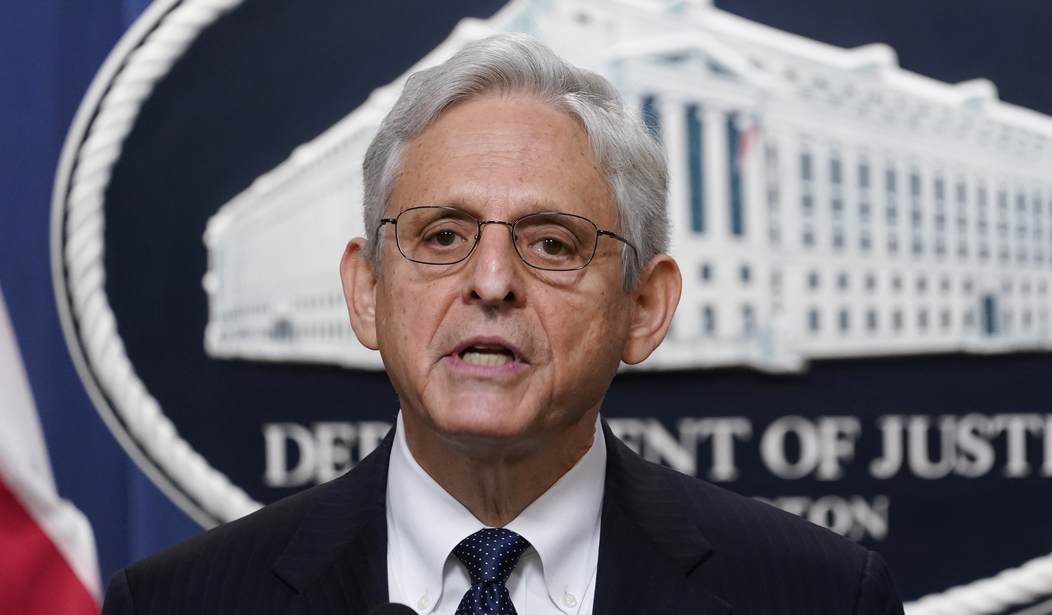Much has been made of Big Tech’s silencing of conservatives, and for good reason. Just do a quick Google search for “Donald Trump” or “Kamala Harris,” and the anti-Republican bias becomes all too apparent.
But the threat of left-wing censorship is dramatically more serious than you might have ever thought. Platform by platform, issue by issue, Democrats and their allies are discovering new ways to stifle the political speech of their ideological opponents. From New York to Silicon Valley and Washington, D.C., liberal elites are organizing well-funded activists to amplify only the political messages they support while pushing all others out of the mainstream—and using the Department of Justice to support the privatization of censorship.
The First Amendment is under threat nationwide, and the most dangerous attack may well be in a “sleeper” federal case from the battleground state of New Hampshire. Earlier this year, political consultant Steve Kramer—known for his questionable use of robocalls—worked for Rep. Dean Phillips' (D-MN) long-shot 2024 Democratic presidential primary campaign. Kramer paid for the use of an AI-generated version of Joe Biden to persuade Democratic primary voters to sit out the primary (why is entirely unclear, since the Democratic National Committee wouldn’t recognize it). Kramer ran afoul of the law, so New Hampshire’s attorney general charged him with 13 felony counts of voter suppression and 13 misdemeanor counts of impersonation of a candidate.
Recommended
But that’s not really the story. In May, the League of Women Voters—a political group unaffected by the odd robocalls—sued Kramer and several layers of telecom infrastructure providers (Lingo Telecom and Life Corporation) over the robocall scandal. Why, you might ask? The League made the unprecedented argument that the Voting Rights Act contains both a private right of action (it doesn’t) that extends to non-threatening communications they deem false (it doesn’t) - weaponizing the law over non-existent threats.
The League has unveiled a new blueprint: Invoke the power of the Voting Rights Act—originally intended to expand political speech, not suppress it—against technology companies and social media platforms over content they carry but don’t create, allowing an army of activists to sue any provider over almost any political message. The cost of defense—even if ultimately victorious—could drive many companies out of the business of political communications altogether.
After all, why spend large sums of cash on lawyers for small sums of potential profit? This would effectively crush the reach of political speech the Left deems “misinformation”—like the Hunter Biden laptop story, anything about COVID, and every other outlandish attempt to silence dissenting opinions over the last eight years.
Like clockwork, the Biden-Harris Justice Department filed a “Statement of Interest” supporting the League’s position that something which simply doesn’t exist in law suddenly, magically, does exist.
Why, you might ask? As a means to empower the Left’s ideological allies and disrupt their shared political opponents—and to give them legal cover in doing so.
The roadmap is clear: With the imprimatur of the federal government behind them, liberal groups across America will be able to litigate not just against campaigns and PACs (and their political vendors), but all the infrastructure vendors and carriers of everything from phone calls and text messages to social media, email, and even targeted social media ads. The net result could be left-leaning corporate boards agreeing to block content in order to gain quick dismissal and avoid legal costs, shutting down huge swaths of political speech they disagree with when it matters most—in an election year.
Supporting this scheme is the DOJ, no stranger to waging lawfare against people and organizations they deem “threats to democracy” (see: Trump, or concerned parents). The DOJ’s support is crucial: By making this nonsense argument an official government position, liberal groups can sue with dramatically less fear of quick dismissal, sanctions, or attorney’s fees under anti-SLAPP laws. What voters could get in 2024 is an October surprise, with Republican voices drowned out and Democrats gaining an unexpectedly massive messaging boost come Election Day.
While the Coolidge Reagan Foundation—a longtime free speech defender—has submitted an amicus brief to prevent the League of Women Voters and their radical DOJ allies from exploiting the Voting Rights Act, this is just one battle against the constant leftist onslaught against our most basic right: To share ideas.
You can’t have a free society that suppresses speech. And yet, the Left—in the name of saving democracy—is hell-bent on using whatever it can to silence Americans.
Dan Backer is a veteran campaign counsel, having served more than 100 candidates and political action committees, overseeing more than $150 million in political spending over the past decade. He practices law as a member of Chalmers, Adams, Backer & Kaufman LLC.
























Join the conversation as a VIP Member